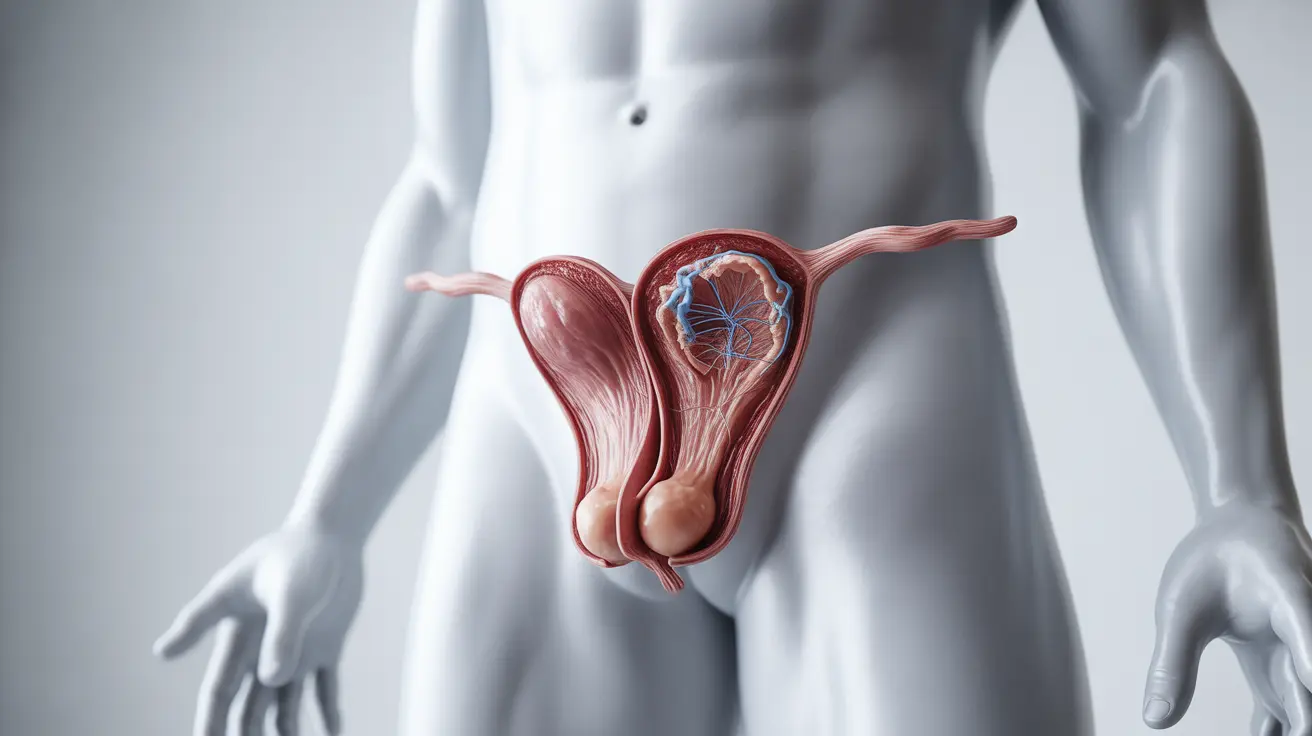Concerns about penile size can significantly impact a man's confidence and well-being. While some men may worry about natural variations in size, there are several medical and psychological factors that can actually cause the penis to become smaller or appear shorter than usual. Understanding these causes is crucial for proper diagnosis and treatment.
This comprehensive guide explores the five main reasons why a man might experience penile shortening or perceived size reduction, along with available treatment options and coping strategies.
1. Peyronie's Disease and Structural Changes
Peyronie's disease is a significant medical condition that can lead to both actual and perceived penile shortening. This condition occurs when scar tissue (plaque) develops inside the penis, causing curvature and potential length reduction during both flaccid and erect states.
- Formation of scar tissue within the penis
- Noticeable curvature during erections
- Reduced flexibility of penile tissue
- Potential pain during erections
- Actual shortening of the penis length
2. Erectile Dysfunction and Its Impact
Erectile dysfunction (ED) can significantly affect both the actual and perceived size of the penis. When ED occurs, men may experience:
- Reduced blood flow leading to smaller erections
- Decreased frequency of erections affecting tissue elasticity
- Potential atrophy of penile tissue over time
- Psychological impacts affecting sexual performance
3. Age-Related Changes
Natural aging processes can contribute to changes in penile appearance and size. These changes typically involve:
- Reduced testosterone levels affecting tissue maintenance
- Decreased elasticity of penile tissues
- Changes in blood flow patterns
- Gradual accumulation of fatty deposits
4. Weight Gain and Obesity
Excess weight can have a significant impact on apparent penile length. When a man gains substantial weight:
- The fat pad above the penis can become larger
- More of the shaft may become buried beneath this fat layer
- Blood flow to the penis may be reduced
- Overall cardiovascular health might be affected
5. Psychological and Environmental Factors
Mental and environmental factors can influence how men perceive their penile size:
- Stress and anxiety can affect blood flow and erection quality
- Temperature changes can cause temporary size fluctuations
- Depression may impact sexual function
- Body dysmorphia can distort size perception
Treatment Options and Solutions
Various treatment approaches are available depending on the underlying cause:
- Medical treatments for Peyronie's disease
- Lifestyle modifications for weight-related issues
- ED medications when appropriate
- Psychological counseling for anxiety and body image concerns
- Physical therapy and stretching exercises in certain cases
Frequently Asked Questions
What are the main reasons a man's penis may become smaller or appear shorter?
The main reasons include Peyronie's disease, erectile dysfunction, aging, weight gain, and psychological factors affecting perception and function.
How does Peyronie's disease cause penile shortening and curvature?
Peyronie's disease causes the formation of scar tissue (plaque) within the penis, leading to curvature during erections and potential shortening due to tissue contracture.
Can erectile dysfunction from Peyronie's disease make the penis seem smaller?
Yes, erectile dysfunction associated with Peyronie's disease can result in reduced blood flow and incomplete erections, making the penis appear smaller than usual.
What treatment options are available to prevent or reduce penile shrinkage caused by Peyronie's disease?
Treatment options include oral medications, injectable treatments, physical therapy, and in some cases, surgical intervention to correct curvature and restore length.
How can anxiety or psychological factors affect the perceived size of a man's penis?
Anxiety and psychological stress can affect blood flow, erection quality, and body perception, potentially making the penis appear smaller than it actually is. These factors can also create a cycle of performance anxiety and reduced sexual function.




